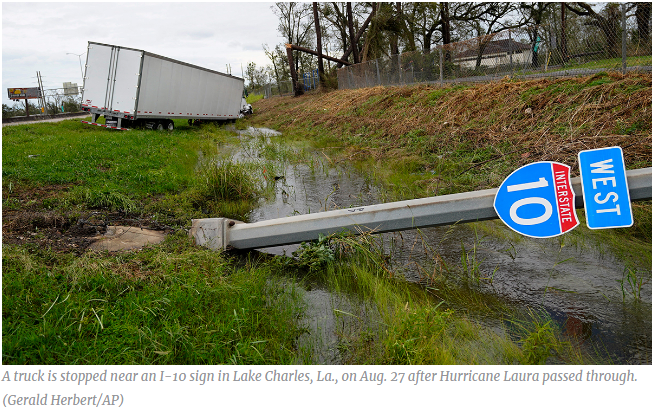by Innovative Mobility Research | Dec 11, 2020 |
Author: Stephen Wong Date: October 1, 2020 Abstract: Evacuations are a primary transportation strategy to protect populations from natural and humanmade disasters. Recent evacuations, particularly from hurricanes and wildfires, have exposed three critical evacuation challenges: 1) persistent evacuation non-compliance to mandatory evacuation orders; 2) poor transportation response, leading to heavy congestion, slow evacuation clearance times, and high evacuee risk; and 3) minimal attention in ensuring all populations, especially those most vulnerable, have transportation and shelter. With ongoing climate change and increasing land development and population growth in high-risk areas, these evacuation challenges will only grow in size, frequency, and complexity, further straining transportation response in disaster situations. View...
by Innovative Mobility Research | Oct 7, 2020 |
Authors: Susan Shaheen, PhD, Adam Cohen, Jacquelyn Broader, Richard Davis, Les Brown, Radha Neelakantan, Deepak Gopalakrishna Date: March 1, 2020 Abstract: This report provides Mobility on Demand (MOD) planning and implementation practices and tools to support communities. The report discusses different stakeholders in the MOD ecosystem and the role of partnerships in filling spatial, temporal, and other service gaps. Additionally, the report discusses how MOD can be integrated into transportation planning and modeling. The report also discusses shared mobility implementation considerations, such as rights-of-way management, multimodal integration, data sharing, equity, labor impacts, and the role of pilot evaluations. Finally, the report discusses technology developments with implications for the MOD ecosystem, such as shared automated vehicles (SAVs), urban air mobility (UAM), and last-mile delivery innovations. This report is a practical resource with: 1) current practices for planning and implementing MOD; 2) case studies and lessons learned; 3) considerations to help public agencies advance MOD in their communities; and 4) resources and recommended reading. View PDF. ...

by Innovative Mobility Research | Sep 25, 2020 |
Author: Eleanor Lamb Date: August 27, 2020 As Hurricane Laura was bearing down on the Gulf Coast, disaster preparedness experts discussed how communication and partnerships between the transportation sector and emergency management agencies are vital components of effective responses to natural disasters. Robert Allen, professor of emergency and security studies at Tulane University in New Orleans, told Transport Topics that it’s key to view emergency situations in terms of capacity and risk assessment, taking into account the procurement of resources and the availability of partners. He encouraged trucking fleets to communicate with U.S. National Guard representatives and law enforcement officers to stay abreast of route accessibility issues. “You look at what transportation infrastructure you have,” Allen said. “You’ve got to have good knowledge of transportation routes.” … Read the full article here....

by Innovative Mobility Research | Jul 6, 2020 |
Author: Vulog Date: July 2, 2020 TSRC’s Susan Shaheen has been selected for Vulog’s Top 20 of 2020 Influential Women in Mobility. The “Influential Women of Mobility” project celebrates women’s achievements in mobility and encourages a shift towards greater gender equality in the industry. In this year’s 2020 edition, Vulog asked the 20 leading women – who were nominated over the course of several months – to share their personal insight into how mobility has and will continue to transform in light of the Covid-19 pandemic, starting with the phrase: “During these unprecedented times, mobility is more important than ever because…” The unique perspectives in this report are based on a collection of diverse fields of expertise and backgrounds (from carsharing and ride-hailing to private industries and public/government organizations or academia) that shed tremendous light on the road ahead to societal, economic, and environmental recovery via mobility. Read the report...
by Innovative Mobility Research | Jun 22, 2020 |
Author: Dave Lee Date: June 17, 2020 Uber has signed a deal to manage public transport in Marin County, in the San Francisco Bay area, with its software. Residents in Marin, which has a population of 250,000, will be able to book rides on public minibuses through Uber’s app, which will match riders travelling in the same direction. Rides will cost $4 per mile, or $3 for those with disabilities or other mobility issues, with the fee going directly to Marin Transit. Uber will not collect a commission, instead charging the authority a flat monthly rate for the next two years, totaling no more than $80,000 over that period. While the contract is minor when set against Uber’s quarterly revenues of $3.5bn, it could lay the ground for Uber to sell its software as a service to public transport officials across the world. David Reich, Uber’s head of transit, said the company was in discussions with… Read the full article...


